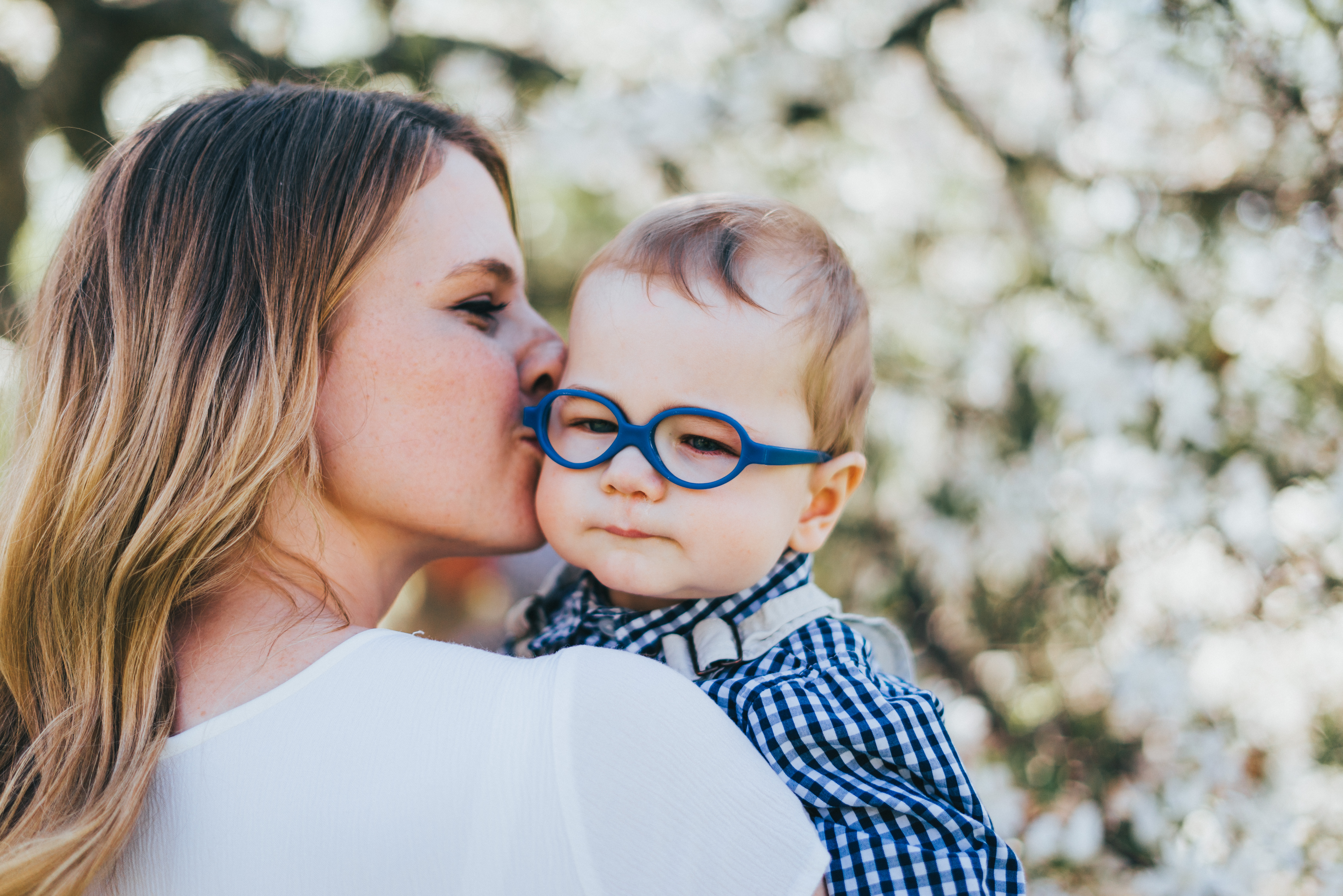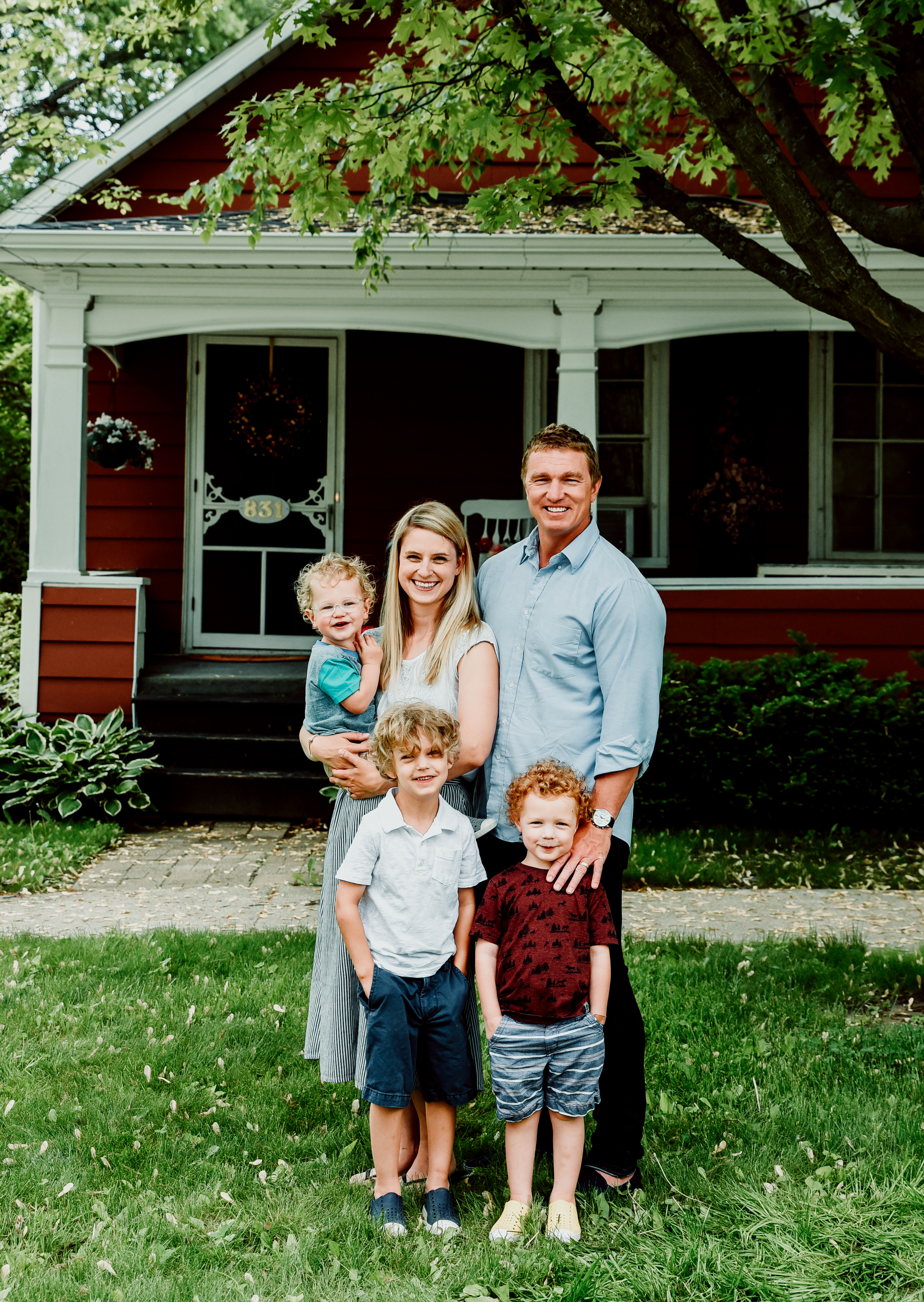This article is in support of August being the National Children’s Eyecare Awareness Month. If you’d like to see more eyecare articles, please click here!
You read the title right. My son has a fake eye. We noticed at birth that he only was opening one eye and not the other. The doctors and nurses told us that it was nothing to worry about- just some bumps and bruises from delivery.
It turns out that they were wrong.
He was born with unilateral microphthalmia and a congenital cataract with PFV. Unilateral means “one side”. Microphthalmia means “small eye”. A congenital cataract is when a baby is born with cataract, and PFV is the abbreviation for Persistent Fetal Vasculature– a condition that affects the “jelly” of the eye and makes it more unstable.
We spent his infancy fighting for his vision in his affected eye, but he ended with a detached retina which made him blind in his left eye. Once we confirmed he was blind (this is done with a VEP, Visual Evoked Potential, test at an Ophthalmologists office) we got in contact with an Ocularist in hopes of getting our son a scleral shell to avoid requiring surgery with the Oculoplastic Surgeon to assist with his face growing symmetrically.
I know that I’m throwing a bunch of medical jargon onto this post, and I’m trying to explain it the best I can, but after being thrown into a medically-complex situation, you start catching on as quickly as possible and soon you forget what requires explanation to a person who doesn’t frequent the Ophthalmologist’s office multiple times a year. But stay with me, here…

My son also has:
The cutest little nasal giggle when you tickle his bulging toddler belly.
The sense of adventure that can only be met by being the youngest brother of three.
The ability to ask for “Uppie” when I’m not paying full attention and suddenly just appearing on my hip.
The cutest curly blond locks that are signature to my boys.
The exclamation of “Zizza!” whenever he sets eyes on his favorite dinner. (Mine too, buddy)
The love of cuddling teddy bears, or “babies” as he calls them.
The loudest “THREE, TWO, ONE, BLAST OFF!” That you’ve ever heard a two-year-old scream.
The best neck-nestling bedtime carry you can ever imagine.
The most hilarious, demanding request of Baby Shark whenever he hears someone ask Alexa for anything.
The adorable nose-push-up of his glasses every few minutes or so.
The joy of climbing like a crazy-two-year-old coupled with no actual depth perception. (Eek!)
The bad habit of already wrestling too much with his brothers.
The ability to nickname anyone, and they accept it with glee. (Grandma is Bee-Bop)
The persistent dedication to yell “HELLO” whenever the phone rings.
The best smile and chuckle that I could have ever imagined.
In short, his left eye makes up just about as much as his personality space as it does his body- minuscule. And a lesson that I’ve learned from mentors and friends within the eye-care community is to not treat him any differently than my other kids. He’s a completely normal, adorable, emotional, sometimes exhausting toddler, and I hope you treat him that way too (even if his eye looks a little crooked sometimes).

If you suspect something is off with your baby or child’s vision, please take the initiative to look for help. This article is not intended to downplay the serious impact that vision plays in our lives and early intervention is key in preventing long-term impact and disability. Vision tests are FREE for babies between 6-12 months through the InfantSEE program and regular eye exams should happen for children just like adults.













My husband injured his eye when he was 10 and has been blind ever since. He’s absolutely fine as I’m sure your son will be too. Thanks for sharing!
Thanks for the response! So far, he is developing on par with his peers! Which we are so thankful for!
Hi Kyla-
Our 2 year old daughter was blind in her left eye at birth as well. Now that she’s almost 2.5 and her vocabulary is expanding, she’s starting to say things about her scleral shell. I was just wondering if you’ve had to have the discussion with your son yet. Does he ask about it all? My wife and I have been having discussions about the best way to explain it all to her without scaring her or making her feel less confident.
I’m sorry I missed this comment, Brian! I know that there are a few older books that talk about it, like “My Fake Eye” or something similar- I’ve actually been in the process for over a year now of working on getting a board book published talking about different eye conditions and how they’re special in toddler simple language, however it’s not published yet!
My son will tell us when his eye is bothering him (he’s also two) and holler “Eye!” if an eyelash or something gets under his shell- but he doesn’t seem too aware of the differences yet. Our older boys, however, have made comments in the past about his eyes looking different or silly- and then we talk with them about how when somebody looks different than them, it’s not nice to stare and talk about it, and then we delve into all of the other differences that we ALL have that make us special (IE a white birthmark, red curly hair, etc)
I like to think that I’m well prepared for the self-esteem issues that might come in hand with this, but I’m sure that I will be stumped more than a few times! My plan of action is to just tell him his story of what happened and point out that he’s special and we love him just how he is! (And also the less normal things like “Please don’t put spaghetti sauce under your eye”)